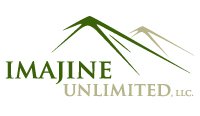“Doing the best at this moment puts you in the best place for the next moment.”
~ Oprah Winfrey
We are at our best when we are flowing in our strengths. We each have been given a unique set of talents. It is deeply embedded in our DNA. There is no one else exactly like you. You reach your best by being fully who you are made to be.
It is through self-awareness and living authentically to our strengths that we reach our best. Jay Niblick in his book, What’s Your Genius?, reviews a study that was conducted with 197,000 individuals to determine the causes of what makes people their best. The results revealed that “the more completely you know your own natural talents (i.e. are self-aware), and the truer you are to those talents (i.e., are authentic), the greater your satisfaction and performance will be.”
This is great news for us as individuals and as organizations. As leaders, if we want our organization to perform at its best, we need to fuel it with people performing at their best. Here are some steps to get you there.
Know Your Strengths
I talked with a leader yesterday who has successfully risen in leadership. As we reviewed her background, a key to her effectiveness has been her knowing her own strengths and then team building around other people’s strengths. Here are some action steps that can help you know your strengths:
- Take an assessment to help you discover what your strengths are. You know that you have strengths, but sometimes we don’t have the words to describe them. An assessment can help you find the words to describe your strengths. Examples of assessments are the Strengths Finder 2.0 or the Attribute Index.
- Ask for feedback from people who know you well. What do they see as your talents and strengths? Others can sometimes see more clearly about ourselves than what we see. They may be able to point out a strength that we have not recognized. You also may know some of your strengths and others feedback can be a confirmation.
Know Your Liabilities
Now you may be saying, “Wait a second here. I thought we were talking about strengths. Why are you bringing up liabilities?” Every strength can also have a liability to it. When we take our strengths to an extreme, they can become a liability. For example, empathy is a great strength for a leader to have. It correlates to emotional intelligence. However, I know a leader who has over used her empathy to the point that it has hurt her health. It can also make her blind to seeing the faults in others, which can diminish accountability. However, when she uses her empathy at a balanced level, she has an incredible strength to connect with and motivate others. Here are some action steps to identify liabilities:
- Reflect on your strengths. What happens when you take them to an extreme? Think about times that you are ineffective. Is it related to a strength out of balance?
- Ask for feedback from those who know you well. What liabilities do they see in your strengths?
Be Aware and Authentic to Your Strengths
Once you know your strengths and liabilities, you have the knowledge to be your best. However, now you must apply it. Dale Carnegie has said, “Knowledge isn’t power until it is applied.” Here are some action steps:
- Inventory your time. How much of your day is spent using your strengths? What amount of time at your work do you use your strengths? Does your volunteer work reflect your strengths? How do you incorporate your strengths with your family?
- What changes can you make right now to incorporate more of your strengths into your day? Could you team up on a project with a coworker who has a strength that is your weakness? Could you delegate or use technology? Do you need to explore changing careers? Do you need to change the role you play in your volunteer work? How can you, your spouse and children work together to complement each other’s strengths?
- Discuss your strengths with others. Talk with your supervisor, colleagues, friends and family about your and their strengths. Express your desire and how it could be feasible to use more of your strengths to benefit everyone.
- Develop a plan to move forward in your strengths. Develop it on your own or use your supervisor or a coach to help you. Great performance and benefits from your strengths come only when you are continually being aware and authentic to applying your strengths. It is an on-going process that builds over time, but it is well worth the investment.
I have worked with several leaders who have discovered their strengths and applied them. Because of the impact in multiplying the effectiveness of their leadership, the organization has benefited greatly. Now the organization is investing in the staff knowing and applying their strengths too. You will be so thankful for the increased satisfaction, morale and productivity in yourself and others!
